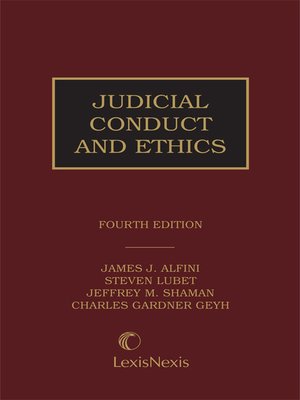
Sign up to save your library
With an OverDrive account, you can save your favorite libraries for at-a-glance information about availability. Find out more about OverDrive accounts.
Find this title in Libby, the library reading app by OverDrive.



Search for a digital library with this title
Title found at these libraries:
| Loading... |
Judges are expected not simply to decide the law but to exemplify it. In the face of increasing public scrutiny and a welter of new decisions, even the best-intentioned judges can find themselves at a loss. Here is the authoritative, practical guidance you need to ensure judicial activities are irreproachable.
Now in its fourth edition, Judicial Conduct and Ethics has established its reputation as the nation's most definitive guide to the conduct of federal, state, and local judges. The new edition, which keeps pace with recent developments in this fast-evolving field, builds on this tradition.
Setting the stage with an illuminating discussion of the use of power, Judicial Conduct and Ethics analyzes every type of accountable action, including judicial demeanor and conduct, ex parte communications, case management and administrative imperatives, financial activities and disclosure, civic and charitable activities, and election and political activities. Learn about the importance of judicial independence as it pertains to each category of conduct.
Some of the substantial new material added to this edition includes appendices of Tables of Model Code Provisions, both the 2007 and 1990 versions of ABA Model Code of Judicial Conduct, and the Guidelines for Cases Involving Judicial Disability. Some other areas that have been substantially revised or expanded include:






